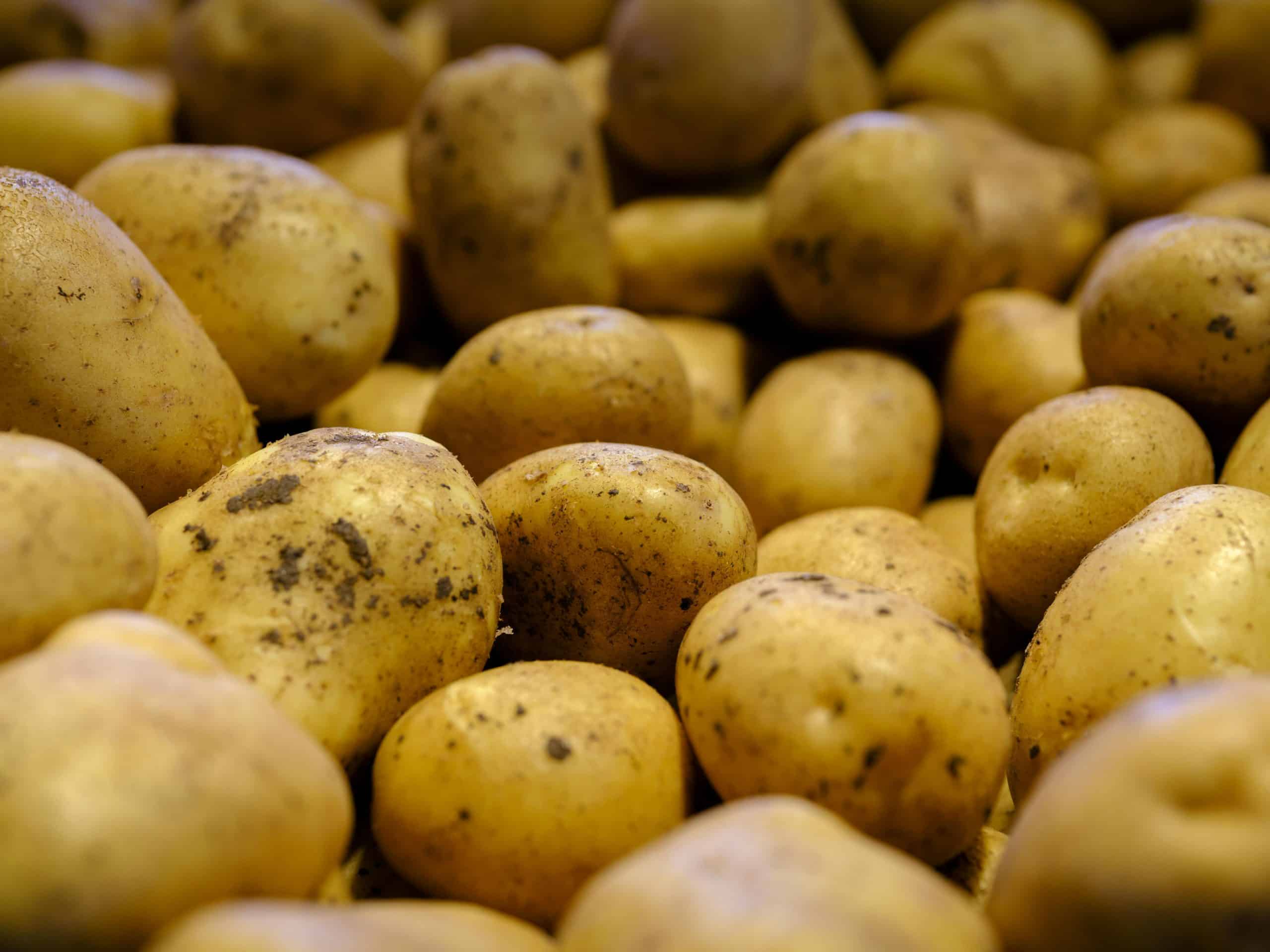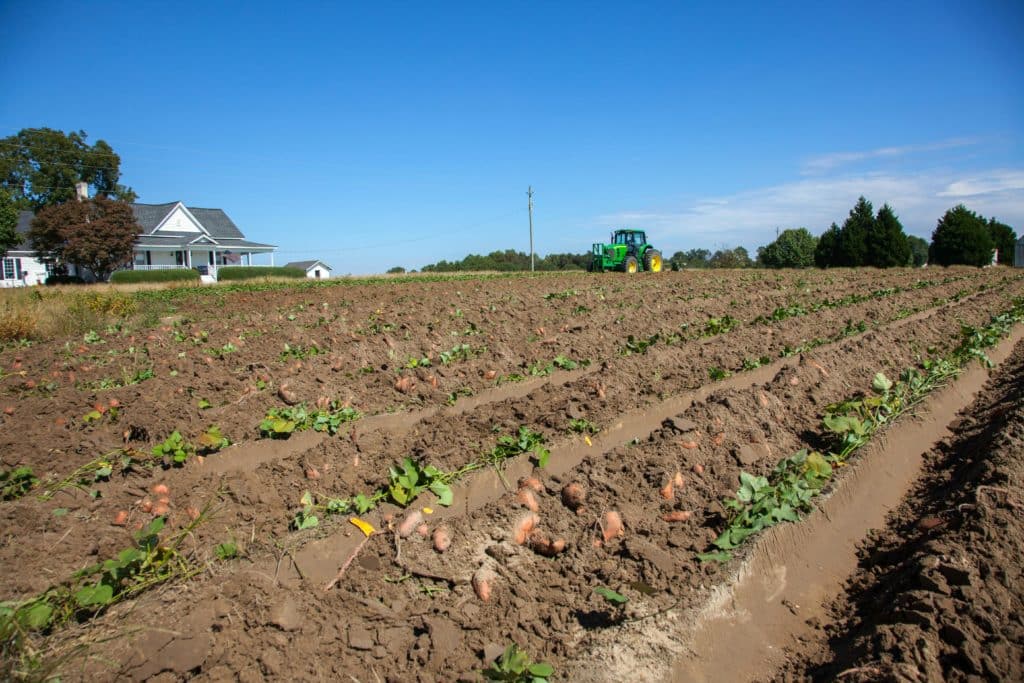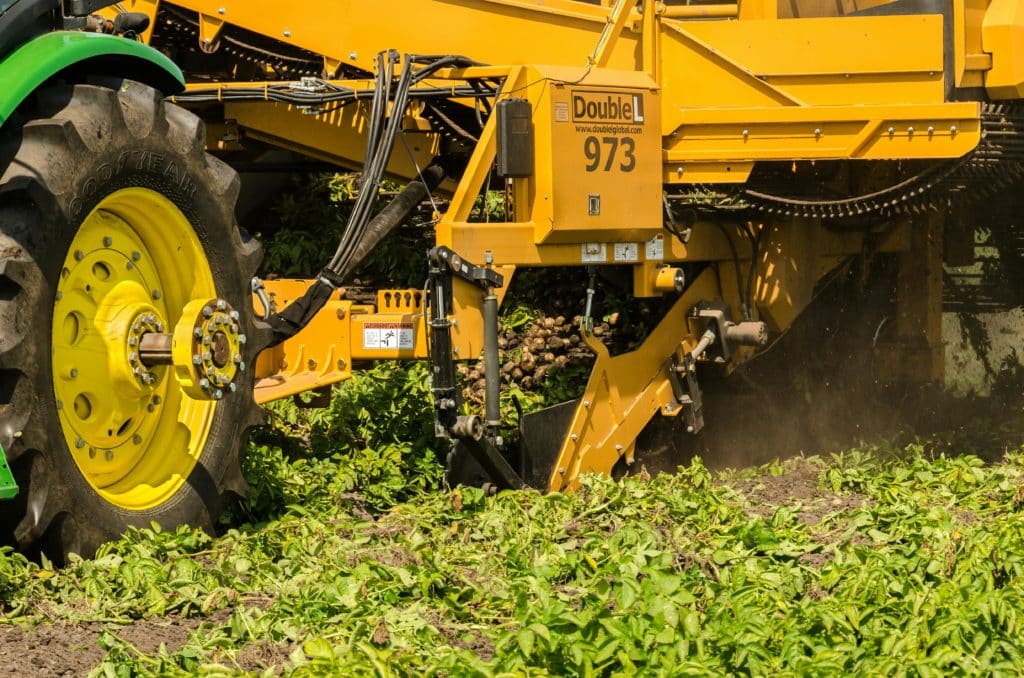
Tuber NetZero
Jul 22 – Dec 25
Funder – Innovate UK
Sustainable agriculture is becoming an urgent priority as industries around the world strive to reduce their environmental impact and meet the growing demand for eco-friendly products. In the potato sector, efforts are underway to revolutionise farming practices by lowering greenhouse gas emissions while maintaining commercial viability. The journey towards producing a “carbon neutral” potato involves a range of innovative approaches, from using low-carbon fertilisers to implementing energy-efficient storage solutions.
By addressing the key areas that contribute to high emissions—fertiliser use, soil health, storage, and transport—these initiatives set the stage for a more sustainable future in potato farming. With continued research, collaboration, and investment, the goal is to transform the potato industry, offering environmental and economic benefits.

The Challenge
The potato industry faces a significant challenge: producing commercially viable crops while minimising greenhouse gas emissions. Potato farming contributes approximately 3.8 tonnes of CO2 equivalent per hectare, so the environmental impact is considerable. Additionally, traditional farming practices, such as using conventional fertilisers and energy-intensive storage methods, contribute to soil degradation and climate change. As consumer demand for sustainable produce grows, the industry is increasingly pressured to find solutions that reduce its carbon footprint without sacrificing crop yield or quality.
Several key challenges must be addressed to achieve low-emission potato production:
- Fertiliser Use: Traditional fertilisers are a major source of emissions in potato farming. Reducing the carbon footprint of these inputs is essential to lowering overall emissions.
- Soil Health: Potato farming is often damaging to soil, leading to long-term environmental concerns and affecting future crop productivity.
- Energy-Intensive Storage: Keeping potatoes in storage requires substantial energy, contributing further to the industry’s carbon footprint.
- Transport: Emissions from transporting potatoes to markets add to the overall environmental impact.


The Solution
A novel technology combining above and below ground sensing to detect the yield of the whole crop and show crop variation.
Trials are currently underway to address the environmental challenges in potato farming by cutting emissions at every stage of production—from cultivation to storage. Key solutions being explored include using carbon-neutral fertilisers made from recycled agricultural waste, which significantly lowers the carbon footprint. Energy-efficient storage methods are being developed to reduce the energy needed to maintain crop quality post-harvest. Sustainable cultivation practices are minimising soil disturbance, while transport efficiency is improving through optimised logistics. Early trial results are encouraging, and continued research aims to refine these methods with the ultimate goal of producing the first “carbon neutral” potato, offering a high-value, eco-friendly product for retailers and contributing to the industry’s progress toward net-zero emissions. Early results are promising, with more trials planned to refine solutions.
Status
Find out more…
To find out more about the Tuber NetZero project, please get in touch.
TuberNetZero is a collaboration with:

